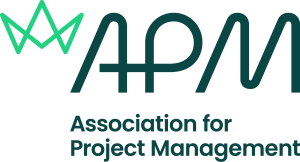
Crossrail cost to complete: Cost and commercial management
Document
type: Journal Publication
Author:
Rachel McLean FCIMA MCIPFA, Victor Fornes, Rob Halstead
Publication
Date: 05/04/2023
-
Abstract
In August 2018, Crossrail Ltd (CRL) announced that the programme to open the Elizabeth line would not be delivered on the original estimated timeline and that the opening of the Central Operating Section (COS) by December 2018 was not achievable. It was also made public that the original estimated budget would be insufficient and that additional funding was required to complete the programme. In late 2018, the Department for Transport announced that the central section funding would be increased to £14.9bn, a £2.15bn increase on the previous limit of funding, enabling the programme to continue with the works.
The delays led to the need to develop a new delivery strategy that could take the programme to completion. In the first half of 2019, after several months of intense planning, Crossrail announced a revised opening window reflecting the Earliest Opening Programme (EOP). The plan was to bring the central section of the line into Revenue Service as early as possible between December 2020 and March 2021, opening all stations except Whitechapel and Bond Street, which would not be complete by this date. This strategy introduced the concept of staged configurations to allow progressive completion of key testing activities. A bottom-up schedule was developed to reflect this logic called the Delivery Control Schedule (DCS 1.0).
By the start of 2020, it became evident that the timescales outlined in DCS 1.0 were not achievable, mainly because of the volume of testing, commissioning and assurance activities required to complete the programme, and the productivity levels that could be achieved in completing this work. In March 2020, the COVID-19 pandemic caused the programme to undertake a ‘Safe Stop’ when the national lockdown was introduced. Work resumed in the second half of April for ‘niche works’ – critical works that could be delivered with small teams working under social distancing rules – but Crossrail used this pause to improve its plan to deliver the remaining works. This brought further resilience to the programme that would ultimately deliver the opening of the COS.
In August 2020, a revised strategy was completed: the new plan was to bring into Revenue Service the central section, this time only excluding Bond Street, in the first half of 2022 and to complete integration of the full end-to-end railway by mid-2023. This new strategy was underpinned by an updated Delivery Control Schedule (DCS 1.1) and supported by a thorough cost and risk modelling process.
This process concluded that additional funding of up to £1.1bn was required, a value that remained valid until the end of the programme. At the time of writing, the P50 forecasted cost was £104m lower than the £1.1bn headline, and the reduction trend was expected to continue as risks and provisions were retired, due to successful delivery and commercial close-out.
This revised DCS 1.1 and the associated cost estimate supported the funding negotiations that led to an additional injection of £825m funding at the end of 2020, and £98.5m in autumn 2022, taking total CRL funding to £15,887m.
This paper explains the methodology used to determine a robust cost estimate for DCS 1.1 and the measures implemented in the closing stages of the programme to maintain control, provide agile decision making and support final close-out.
-
Document Links
-
Authors
Rachel McLean FCIMA MCIPFA - Transport for London
Rachel McLean was appointed TfL’s Chief Finance Officer (CFO) in October 2022. She is responsible for the overall TfL Budget, funding and business enabling processes. She will drive cost efficiency across the entire organisation, including through supply chain transformation.
Rachel was previously the CFO for Crossrail and Finance Director for Operations, having re-joined TfL in January 2020 from the Ministry of Housing, Communities, and Local Government where she was a Board Member and the Director General – Chief Financial Officer. She has also been the Director of Planning, Performance and Finance at HMRC Customer Services.
Rachel has a wealth of experience in both the private and public sectors and previously worked for TfL for nine years in senior asset management and finance roles. She is a Fellow of the Chartered Institute of Management Accountants and a Member of the Chartered Institute of Public Finance and Accountancy.
She is also a non-Executive Board member and Chair of the Audit & Risk Assurance Committee at Sellafield Ltd.
Victor Fornes - Turner & Townsend
Victor is a Project Director in Turner & Townsend. He was Finance Director (acting) for Crossrail during the final handover and transition stage of the Programme. He started in Crossrail in 2017 as Lead Cost Engineer for Farringdon station and in 2019 joined the central Commercial and Finance teams to support the development of the cost estimate for the recovery phase of the Programme, the exercise that led to the production of the cost estimate that would remain valid until completion.
Prior to Crossrail, Victor worked in various Programme Controls roles at different multibillion pound programmes, mainly in mining industry in Chile. Victor is an engineer by background, with a Masters in Management.
Rob Halstead - Turner & Townsend
Rob Halstead was Head of Risk Management for Crossrail from 2009 to 2016. During that period he led the development and implementation of a comprehensive risk management framework, developing the policy, process, systems and tools required to effectively manage risk on this infrastructure mega-project. He is now a Director of Turner & Townsend Infrastructure.
Prior to joining Crossrail, Rob worked in various risk management roles at London Underground and Network Rail. Rob has an engineering background, is a member of the Institute of Risk Management and a regular contributor on risk management and quantitative risk assessment and its use in the financial appraisal of major projects.
-
Partners

Association for Project Management



